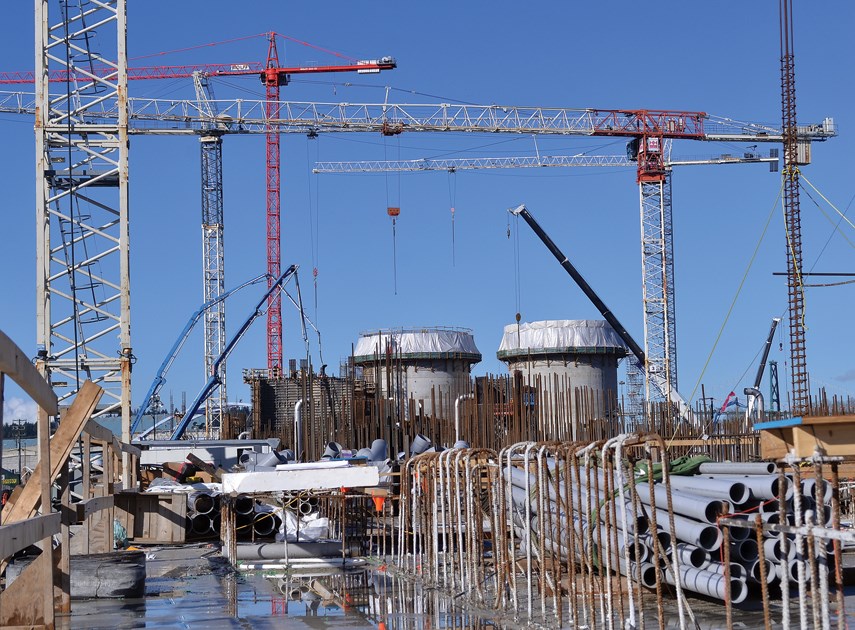B.C. has seen its share of budget overruns on public infrastructure projects over the years, but the North Shore wastewater treatment plant is truly in a class of its own.
Taking a project from an original cost of $700 million to a final cost of almost $4 billion is a stunning example of an epic failure when it comes to building infrastructure.
But while the wastewater treatment plant may present the biggest budget overrun (in percentage terms, not in sheer dollars) of public infrastructure ever seen in this province, it is hardly unique when it comes to ballooning costs.
In terms of sheer dollars, the Site C dam is the grandaddy of all public budget overruns. The final cost is expected to come in at $16 billion, twice the original $8 billion cost estimate (a host of geological challenges appears to be the principal reason for the increase budget).
The Coquihalla Highway project rivals the wastewater treatment plant debacle when the overrun is looked at from a percentage increase perspective. The highway ended up costing about $1 billion, a fourfold increase of the original cost estimate.
A public inquiry found the highway’s construction was fast-tracked during winter months, when construction was difficult, and costs skyrocketed as a result. The hastened construction schedule was to meet the Social Credit government of the day’s political priority: having the highway open in time for Expo 86.
The Vancouver Trade and Convention Centre ended up costing almost $900 million, nearly twice the original cost estimate.
More recently, some of the new hospitals being built around the province are coming in at costs significantly higher than first projected. Cowichan District Hospital, originally to cost $867 million, will now cost almost $1.5 billion.
Cariboo Memorial Hospital in Williams Lake is expected to cost $367 million, a 68 per cent increase over the original budget of $218 million. And the new Surrey hospital has gone from $1.7 billion to $2.8 billion in costs in one year.
A combination of factors, such as rising inflation, material costs, labour shortages or expanded scope of a project seem to have come together to drive up costs.
However, B.C. is hardly unique when it comes to spiraling costs associated with infrastructure.
For example, there are many U.S. projects that have been delayed for years while costs skyrocket. The “Big Dig” in Boston for a rail transit line went from $7.4 billion to costing $21.5 billion, and the California bullet train has gone from being a $33 billion project to one costing more than $100 billion.
Back home in B.C., let’s hope the other major projects underway – the Broadway subway ($2.8 billion), Surrey-Langley Skytrain ($4 billion), Pattullo Bridge ($1.4 billion) and the Fraser River tunnel ($4.1 billion) come in on budget. This year’s budget shows no change in those estimates, so fingers crossed.
A transportation ministry official has told me that “vertical” projects such as buildings are experiencing budget increases, while “horizontal” projects such as roads and bridges are not for the most part.
The North Van wastewater treatment plant is a vertical project. Unfortunately, it looks like it will take a very direct and horizontal reach into taxpayers’ wallets for years to come.
Keith Baldrey is chief political reporter for Global BC.



